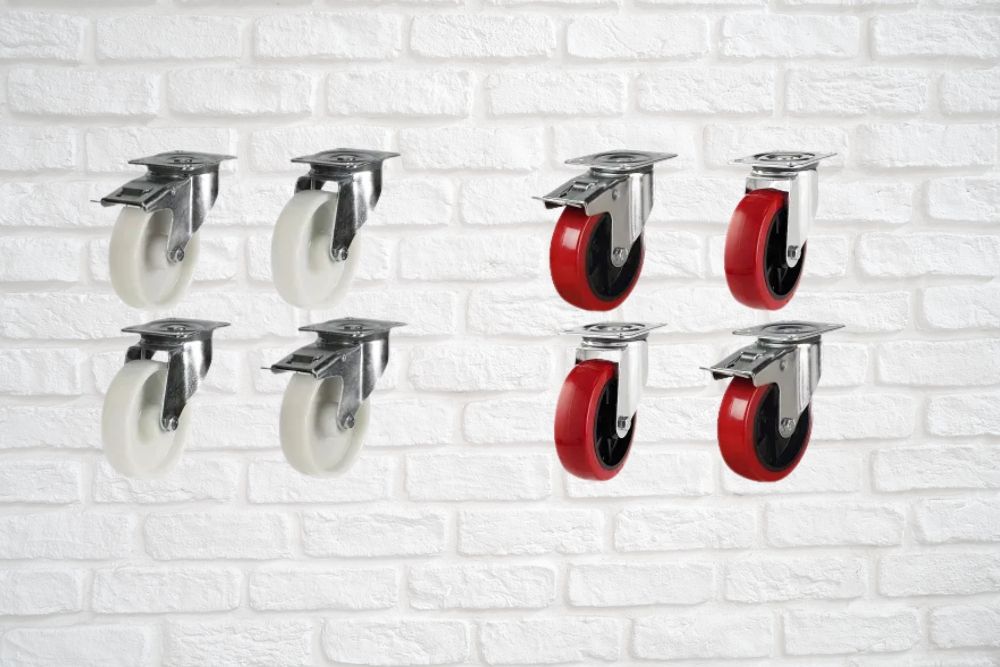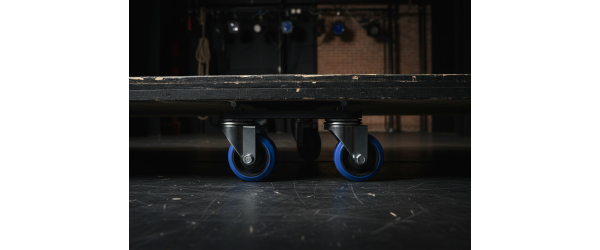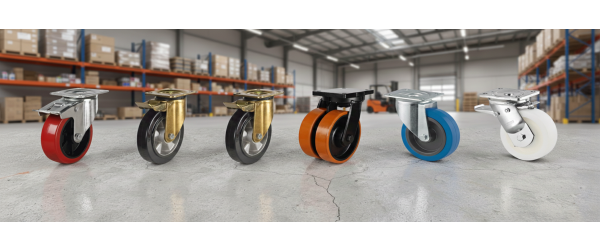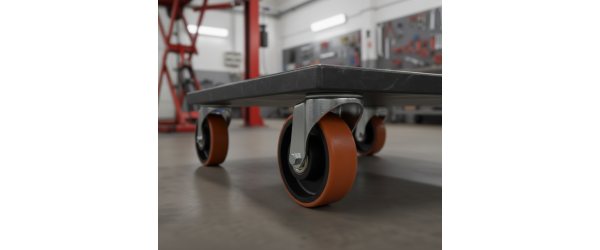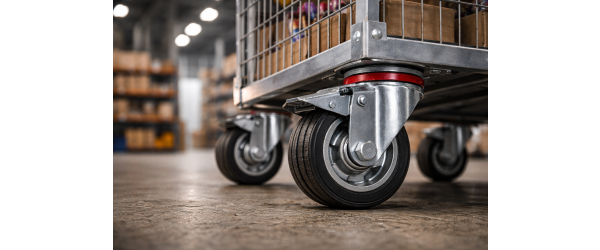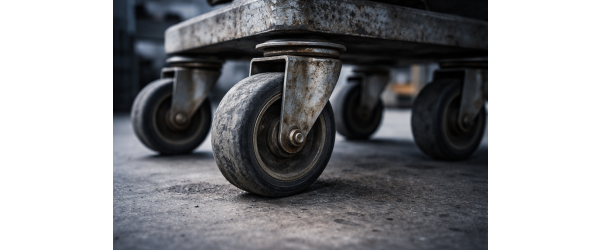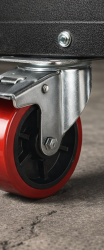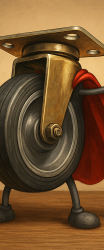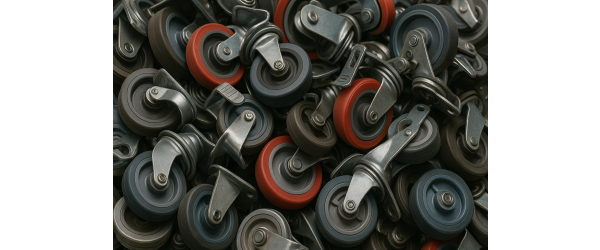Choosing the right wheel material is essential for ensuring reliable performance, floor protection, and long-term durability. Two of the most commonly used materials for castor wheels are nylon
and polyurethane. Both have strengths and are suited to specific environments and tasks, but how do you know which is the best fit for your needs?
In this guide, we compare nylon and polyurethane castor wheels, helping you decide which material is most appropriate for your application, whether it’s in a warehouse, medical facility, retail environment or industrial setting.
1. An Overview of Nylon and Polyurethane Castor Wheels
Nylon Castor Wheels
Nylon wheels are made from a hard, rigid plastic. They are extremely durable, offer low rolling resistance, and are well-suited to carrying heavy loads across smooth, hard surfaces. Nylon is also resistant to moisture, oils, and chemicals, making it a strong choice for demanding environments.
Polyurethane Castor Wheels
Polyurethane wheels are made from a synthetic elastomer that combines the strength of plastic with the flexibility of rubber. These wheels are softer than nylon, providing more grip, better floor protection, and a quieter ride. Polyurethane is also resistant to abrasion and many industrial chemicals.
2. Comparing Key Performance Features
a. Load Capacity
- Nylon wheels tend to support heavier loads due to their rigid structure. They are ideal for applications that require high weight capacity, such as heavy-duty trolleys or manufacturing equipment.
- Polyurethane wheels, while strong, typically support slightly less weight but still perform well for medium to heavy loads.
Tip:
For static or very heavy loads, nylon may offer a slight edge in structural strength.
b. Floor Protection
- Polyurethane castor wheels are softer and more forgiving, making them better suited to protecting flooring surfaces like tiles, wood, and epoxy.
- Nylon wheels can be harsher on floors and may leave marks or scratches, especially on delicate or uneven surfaces.
Tip:
If you need to protect your flooring, polyurethane is generally the safer option.
c. Rolling Resistance and Manoeuvrability
- Nylon wheels roll more easily due to their harder surface, especially on smooth, flat floors.
- Polyurethane wheels provide more grip, which can be beneficial in preventing slips, but may offer slightly more resistance.
Tip:
For long, straight runs on hard floors, nylon is efficient. For environments requiring frequent direction changes or grip, polyurethane excels.
d. Noise and Vibration
- Polyurethane wheels absorb shock and vibrations better, resulting in quieter operation—ideal for office, retail, or healthcare settings.
- Nylon wheels tend to be louder when rolling and can transmit vibrations from uneven flooring.
Tip:
In noise-sensitive environments, polyurethane is the preferred material.
e. Durability and Wear Resistance
- Both materials are highly durable, but in different ways.
- Nylon excels in high-impact, dry conditions and is highly resistant to cracking.
- Polyurethane resists wear and performs well on rough or abrasive surfaces while maintaining its grip and shape.
Tip:
Polyurethane may provide better long-term performance for environments with rough terrain or frequent movement.
3. Best Applications for Each Wheel Type
Nylon Castor Wheels Are Ideal For:
- Warehouses with concrete flooring
- Factories and industrial facilities
- Heavy equipment and trolleys
- Environments where water and chemicals are present
Polyurethane Castor Wheels Are Ideal For:
- Offices, hospitals, and schools
- Retail environments with polished floors
- Trolleys requiring quiet, smooth movement
- Mixed flooring or light industrial use
4. Cost Considerations
- Nylon castors are often slightly more cost-effective due to their simpler composition and lower material cost.
- Polyurethane castors may cost a little more, but their floor protection and noise reduction benefits can reduce maintenance costs over time.
Tip:
Always consider total cost of ownership, including potential floor repairs and replacement frequency.
Conclusion
When comparing nylon and polyurethane castor wheels, the right choice depends on your priorities. Nylon excels in load capacity and low rolling resistance, making it ideal for tough industrial settings. Polyurethane offers a quieter, floor-friendly solution better suited to indoor or customer-facing environments. Understanding your application, flooring type, and usage demands will help you choose the most effective solution. Explore our full range of nylon and polyurethane castor wheels at Castors Online to find the perfect match for your needs.
